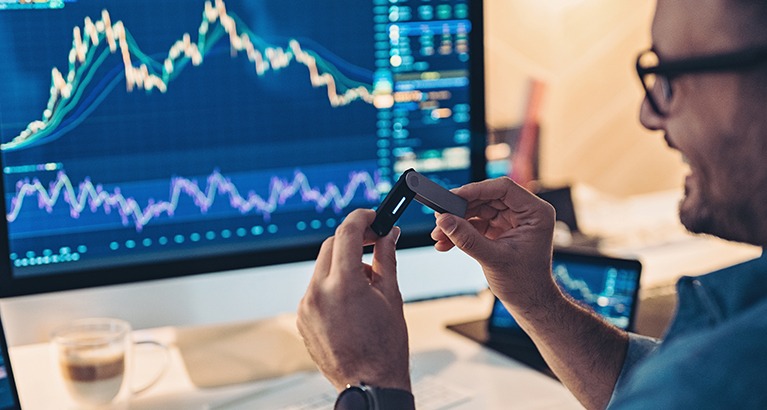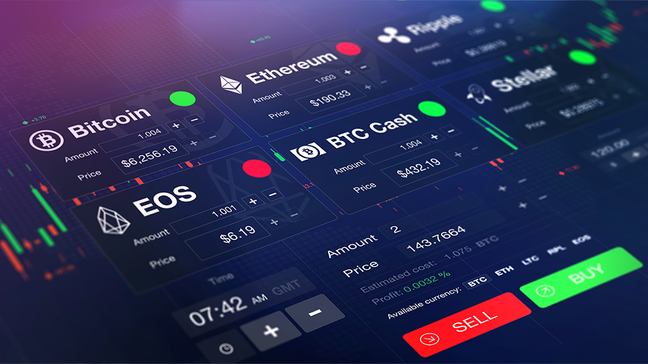
Understanding the Fundamentals of Crypto Futures Trading
Crypto Futures Trading has gained immense popularity as a way for traders to speculate on the price movements of various cryptocurrencies. This financial instrument allows participants to enter contracts to buy or sell a specified amount of a cryptocurrency at a predetermined price at a future date. The mechanics of trading futures differ significantly from spot trading, making it imperative for traders to grasp these variations before embarking on their trading journey. For an introductory overview, you can check out Crypto Futures Trading https://www.bitchute.com/video/hxrh9xE4OuiS/.
What Are Crypto Futures?
Crypto futures are part of the broader category of derivatives that allow traders to speculate on the future value of cryptocurrencies without actually owning the underlying asset. These contracts are standardized agreements that specify the quantity of the cryptocurrency, the price, and the expiration date. By trading futures, investors can profit from both rising and falling markets. This makes futures trading particularly appealing in the volatile cryptocurrency space.
How Do Crypto Futures Work?
To understand crypto futures trading, it’s essential to grasp the concept of leverage. Many exchanges offer the option to trade futures with significant leverage, allowing traders to control larger positions with a smaller amount of capital. For instance, a trader using 10x leverage can open a position worth $10,000 while only needing to put up $1,000. While this can amplify profits, it also increases risk, as losses can exceed the initial investment.
Types of Futures Contracts
There are primarily two types of futures contracts: perpetual contracts and regular futures contracts. Perpetual contracts do not have an expiration date and are designed to mimic the spot market closely. Regular futures contracts, on the other hand, have a set expiration date, after which the contract is settled based on the underlying asset’s price.
Benefits of Crypto Futures Trading
Trading futures can offer several advantages over traditional stock trading or spot trading in cryptocurrencies:
- Short Selling: Traders can profit in a falling market by selling futures contracts they do not own.
- Leverage: Enhanced buying power allows traders to magnify their investment potential.
- Hedging: Investors can protect their crypto portfolios from adverse price movements.
- Diverse Opportunities: Futures contracts are available for various cryptocurrencies, allowing for diversified trading strategies.
Risks Involved in Crypto Futures Trading
Despite the potential benefits, crypto futures trading is fraught with risks:
- High Volatility: Cryptocurrencies are notorious for their price swings, which can lead to substantial gains or devastating losses in a short time.
- Leverage Risks: Using leverage can amplify losses to exceed the initial investment, potentially leading to margin calls.
- Lack of Regulation: The crypto market is still largely unregulated, increasing the risk of fraud and market manipulation.
- Complex Market Dynamics: Understanding the factors that influence crypto prices can be challenging, requiring extensive research and analysis.
Strategies for Successful Futures Trading

Successful trading in the crypto futures market requires a well-thought-out strategy. Here are some popular approaches:
1. Trend Following
This strategy involves identifying and trading in the direction of the prevailing market trend. Traders utilize technical analysis tools to examine price charts for patterns that indicate the continuation of trends.
2. Arbitrage
Arbitrage strategies take advantage of price discrepancies between different exchanges or markets. Traders buy a contract on one platform at a lower price and sell it on another for a profit.
3. Spread Trading
This strategy involves taking positions in different contracts simultaneously to profit from the price differences. For instance, a trader might buy a contract of Bitcoin for a longer expiration date while selling one with a shorter expiration.
Choosing a Crypto Futures Exchange
Selecting the right trading platform is critical for futures trading. Here are some factors to consider:
- Liquidity: Ensure the exchange offers high trading volume for the futures contracts you intend to trade.
- Fees: Be aware of trading fees, withdrawal fees, and any other charges that may affect profitability.
- User Experience: The platform should be user-friendly, with intuitive navigation and robust trading tools.
- Security: Look for exchanges with high security standards, including two-factor authentication and cold storage of assets.
Conclusion
Crypto futures trading offers numerous opportunities for traders willing to navigate its complexities and risks. By understanding the mechanics, benefits, and strategies associated with futures contracts, investors can make informed decisions that align with their trading goals. Whether you are an experienced trader or just starting in the crypto space, futures trading can serve as a powerful tool in your trading arsenal.
